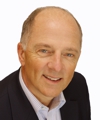 At this fall’s Canadian Society for Training and Development conference I am delivering a full-day pre-conference workshop on November 11, Powerful New Approaches to Building Extraordinary Leadership and Coaching Skills, and a 90 minute conference session on November 13, Revolutionary Leadership Development that Doubles Learner Motivation. In their eNewsletter CSTD shone “the Speaker Spotlight” on me with a series of questions. Answering these questions was thought provoking:
At this fall’s Canadian Society for Training and Development conference I am delivering a full-day pre-conference workshop on November 11, Powerful New Approaches to Building Extraordinary Leadership and Coaching Skills, and a 90 minute conference session on November 13, Revolutionary Leadership Development that Doubles Learner Motivation. In their eNewsletter CSTD shone “the Speaker Spotlight” on me with a series of questions. Answering these questions was thought provoking:
How did you end up working in this field? In other words, did you choose this career or did it choose you?
Back in the day, as a sales manager with Culligan, I took a few Dale Carnegie training courses and got turned on to personal development. I then studied and started using coaching and development approaches with my direct reports and later as a sales trainer. Given the powerful results I experienced from these approaches I moved into the industry through co-founding The Achieve Group (now AchieveGlobal) in the early eighties.
What key strength do you think you bring to the industry?
Blending the catalytic power of the “soft skills” of leadership with management processes and systems that build stronger people and stronger organizations.
Who was your favorite teacher growing up and why?
Mrs. Westman, my grade six teacher, was highly encouraging and nurturing. One day, after handing in a short written story or assignment, she said “I won’t be surprised to see your name on a book someday.” When I published my first leadership book in 1988 I went to her home and presented her with a copy inscribed with a personal thank you note. The local paper caught wind of the story and published a feature article giving her the recognition she deserved.
What do you think symbolizes true leadership?
Authenticity. Highly effective leaders leverage their strengths and look for feedback to become even better at doing what they do well — and what they love to do. They don’t try to “change their spots” by focusing on weaker areas and trying to change themselves into someone they’re not.
If you had to sum up your leadership and training philosophy with one tip, what would that be?
Get feedback on your strengths and build those (unless there’s a critical weakness that people can’t see past). Become an effective coach at bringing out and building the strengths of those you lead.
If you could change it all today, what alternate career would you choose?
I’d get into psychology or neurosciences research.
Which celebrity would you choose to play you in the movie of your life?
My wife, Heather, probably wishes I’d look like George Clooney but that would be a gross misrepresentation — and the poor guy has way too much hair! Harrison Ford might be better with his combination of street savvy and humor that I’ve always enjoyed. My life hasn’t been nearly as adventurous as the parts he’s played.
Name one book or film from the past decade that has had a big impact on you. Why?
The pioneering work of Martin Seligman in founding positive psychology (Learned Optimism, Authentic Happiness, and Flourish) and Zenger Folkman’s ground breaking research advancing strengths-based philosophies with practical methodologies (The Extraordinary Leader and How to Be Exceptional) are highly complementary combinations that have sharpened my own personal growth and dramatically shifted our approaches to leadership development.
What are you reading now?
I am rereading The Power of Myth by Bill Moyers and Joseph Campbell (working to get my head around Campbell’s huge and deep legacy of research on mythology and religion) and Lincoln by Gore Vidal (I love historical fiction).
What is your ideal travel destination? Why?
Heather and I love long ocean cruises. After taking a four week Hawaii and South Pacific cruise we confirmed that doing a world cruise is on our bucket list. I love visiting a variety of cultures and countries to learn of their history and customs before and during our stops there.


Want to discuss this post? Contact us!